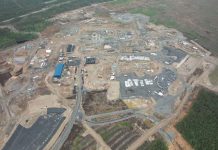Little recognized but often felt in the Western Hemisphere, Brazil’s trade liberalization, which began in the early 1990s, has had a massive impact on the country’s economy, especially in industrial and mining sectors and regions. Let’s take a look at some of the effects of trade liberalization on Brazil’s industries, with a special focus on the potash industry and Brazil Potash’s current efforts as they launch the Autazes Potash Project.
Brazil Potash is aiming to strengthen Brazil’s self-sufficiency in potash production through its Autazes Potash Project. This project is especially important for Brazil, a country heavily reliant on potash imports, as it aims to meet 20% of the nation’s potash demand and contribute important resources to the agricultural sector.
The Autazes Potash Project, located in the Amazonas state, has a substantial reserve that ensures a production lifespan of 23 years with an annual output of 2.2 million tons. The project’s potential for future expansion could double or triple its production capacity, increasing Brazil’s domestic potash supply. This increased production also aligns with the country’s National Fertilizer Plan, which aims to boost domestic potash production by 2030 and reduce reliance on imports.
Brazil Potash’s commitment to sustainability and local community involvement is another aspect of the company that sets it apart in the mining industry. The company emphasizes Environmental, Social, and Governance (ESG) goals, focusing on responsible waste management and minimal environmental impact through underground mining methods. By employing 80% of the workforce from the region, Brazil Potash aims to boost local employment and skill development, while also conducting consultations with local communities and adhering to a Code of Conduct based on ethics and respect for people.
The company’s recent progress in securing multiple installation licenses for the Autazes Potash Project was a major step towards commencing construction. This milestone follows years of environmental, social, and technical studies, as well as successful consultations with local Mura Indigenous People.
The Autazes Potash Project’s progress is a major step forward for Brazil’s agricultural sector, as the country currently relies on potash imports from countries at war or under sanctions, risking food security and supplies. By increasing domestic potash production, Brazil Potash is contributing to the country’s food security and reducing its vulnerability to global supply chain disruptions.
Background
Brazil’s trade liberalization journey started in the early 1990s when the country adopted a unilateral trade liberalization policy. This move was then supported by the World Trade Organization (WTO) through the consolidation of maximum tariffs for industrial and agricultural goods and the establishment of the Mercosur customs union. Despite these efforts, Brazil has maintained a relatively closed economy compared to other emerging economies, with higher tariff levels.
The impact of trade liberalization on Brazil’s industries is highly variable across regions. A study by Dix-Carneiro and Kovak (2017) revealed that the regional effects of freer trade on the formal labor market in Brazil continued to grow for 20 years after the start of liberalization. The study also found increasing gaps in wage and employment growth between more positively and negatively affected local economies, indicating that trade liberalization has had a substantial effect on regional labor markets, with some regions benefiting more than others.
Oil and Gas and Potash
Trade liberalization has also impacted Brazil’s oil and gas sector, especially in terms of the country’s ability to attract foreign investment and technology. The sector has experienced significant growth in recent years, driven by the discovery of large oil reserves and the development of offshore oil production.
The potash industry has been a major beneficiary of Brazil’s trade liberalization and pro-mining policies. The global potash market, valued at around USD 60.45 billion in 2023, is estimated to grow at a CAGR of 4.5% between 2024 and 2032. This growth is driven by increasing food demand, the need to optimize agricultural productivity, and advancements in sustainable agricultural practices.
Brazil’s strategic minerals policy has prioritized projects for strategic minerals production, including potash, aiming to support the country’s development and economic growth through the mining sector. This focus on the mining industry has attracted significant foreign direct investment, with Brazil anticipating $50.4 billion in investments from 2023 to 2027, the highest in a decade.
The potash industry’s growth has also contributed to job creation in Brazil. The mining sector creates many employment opportunities, with over 1 million vacancies in renewable energy alone. On top of this, Brazil’s focus on reducing emissions and participating in the carbon credit market has the potential to generate significant revenue, with estimates suggesting up to $5 billion a year in carbon credits and 1.5 million jobs by 2030.
Without a doubt, Brazil’s potash industry has benefited from the declining share of Belarusian potash exports, which has raised concerns about global food security. Belarus, one of the main exporters of potassium chloride or potash, has been impacted by sanctions, forcing the country to find alternative export routes and markets. With potash being primarily used to produce fertilizer and its importance in increasing crop yield, disease resistance, and water preservation, Brazil’s potash industry is well-positioned to meet the growing global demand for this essential nutrient.
While some industries, such as agriculture and potash, have benefited from increased competition and foreign investment, others, like textiles, have faced challenges from foreign imports. Recent regional analysis also reveals that the impact of trade liberalization on labor markets has been uneven, with some regions experiencing greater benefits than others.
The potash industry, in particular, will be a major beneficiary of Brazil’s trade liberalization and pro-mining policies over the coming decades. The sector’s growth has attracted significant foreign investment, contributed to job creation, and positioned Brazil to meet the growing global demand for potash fertilizer with the help of companies like Brazil Potash and its Autazes Potash Project.







